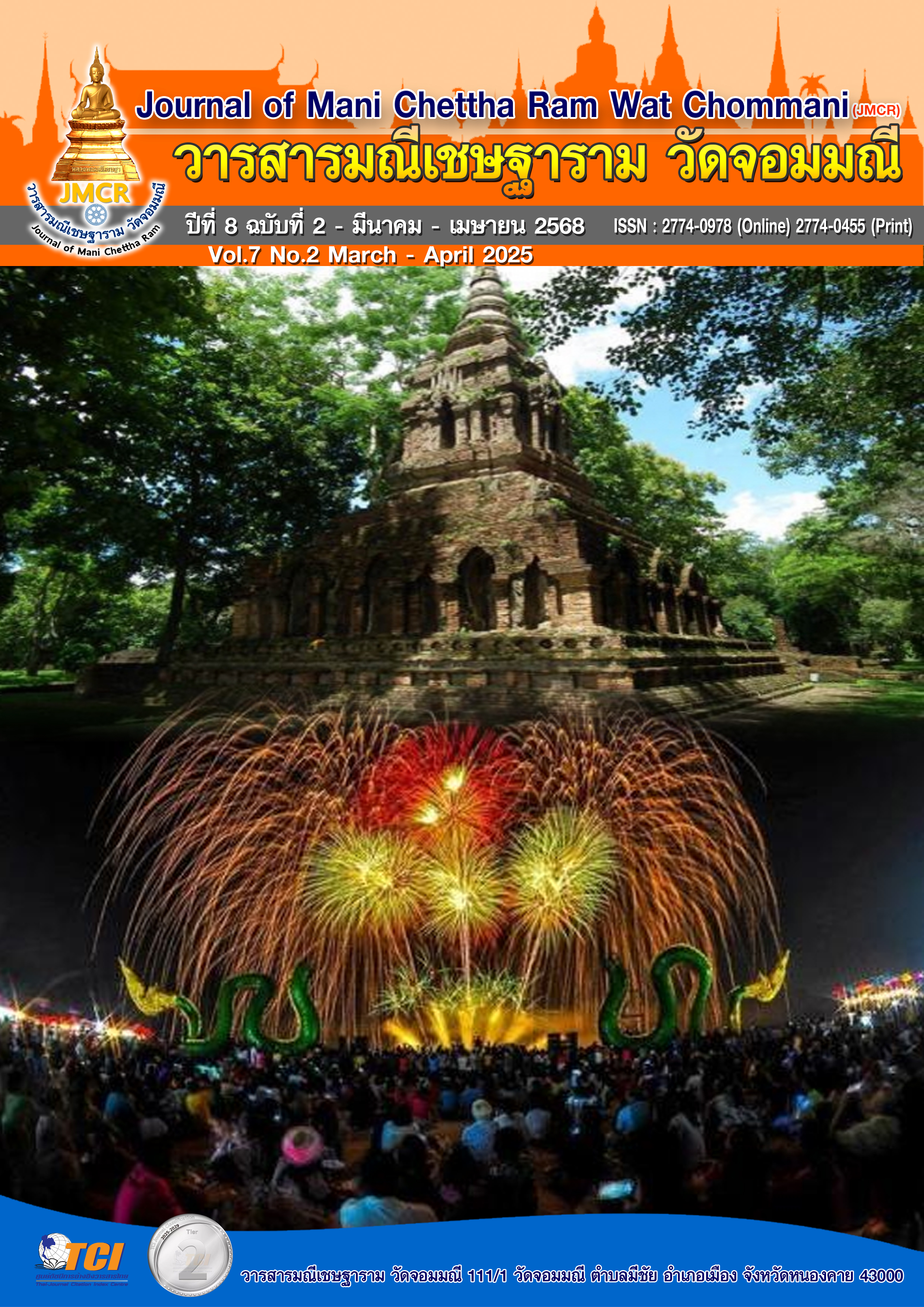GUIDELINES FOR DEVELOPING TECHNOLOGICAL LEADERSHIP OF SCHOOL ADMINISTRATORS IN THE DOI LUANG EDUCATIONAL DEVELOPMENT NETWORK GROUP
Keywords:
Technological Leadership, Doi Luang Educational Development Network GroupAbstract
The purposes of this independent study were 1) to study the technological leadership of educational institution Administrators in Doi Luang Educational Development Network Group. The sample group of this independent study was 106 Educational personnel in Doi Luang Educational Development Network Group. 2) To study the best practice guidelines for technological leadership of educational institution executives. The Informants of this study were 4 administrators and heads of 4 departments.The instruments is an interviewing form. 3) To suggest the Technological Leadership development of Institution administrators in Doi Luang Educational Development Network Group.
The study results show that 1) the Technological Leadership of Educational of the administrators overall was in high level. The lowest aspect of this study was using technology in management: that was in high level.
2) Study the best practices for the development of technological leadership in 4 areas 1.Having a vision to use technology 2.Use of technology in management 3.Use of technology to measure and evaluate 4.Ethical in using technology.
3) Guidelines for the development of technological leadership of executives from the study of the technological leadership of school administrators and study the best practices for the development of technological leadership as follows: 1) In terms of having a perception for using technology, having a technology perception that sets clear goals, communication to construct cooperation, and choosing the suitable technology. 2) In terms of using technology in management, using technology through digital systems escalation work efficiency. 3) In terms of using technology for measurement and evaluation, personnel are encouraged to develop a comprehensive, convenient measurement and evaluation system that reflects learners’ development. 4) In terms of ethics in using technology, developmental ethics in using technology by instilling awareness, supporting transparency, respecting individual rights, and setting clear policies.
References
กัญญาภัค ชลธาร. (2564). การพัฒนาระบบการประเมินผลการเรียนรู้แบบดิจิทัลในโรงเรียประถมศึกษา. ใน วิทยานิพนธ์. มหาวิทยาลัยบูรพา.
กฤษฎา สุวรรณศิลป์. (2565). แนวทางการส่งเสริมจริยธรรมในการใช้เทคโนโลยีในสถานศึกษา. วารสารจริยธรรมและเทคโนโลยี, 9(4), 102-120.
กฤษณา อินทรสุข. (2565). การปลูกฝังจริยธรรมในการใช้เทคโนโลยีสารสนเทศในโรงเรียน. วารสารคุณธรรมศึกษา, 7(4), 90-102.
กระทรวงศึกษาธิการ. (2560). หลักสูตรแกนกลางการศึกษาขั้นพื้น ฐาน พุทธศักราช 2551 (ฉบับปรับปรุง 2560). กรุงเทพมหานคร: ผู้แต่ง.
จารุวรรณ ทองไทย. (2564). การพัฒนาระบบเทคโนโลยีสารสนเทศในการบริหารสถานศึกษา. วารสารการจัดการศึกษา, 9(1), 20-36.
จารุวรรณ ธาราทิพย์. (2562). การพัฒนาระบบบริหารจัดการข้อมูลในโรงเรียนเพื่อเพิ่มประสิทธิภาพและความโปร่งใส. วารสารบริหารการศึกษา, 5(2), 45-60.
ชญานิษฐ์ สมบัติ. (2564). การพัฒนาผู้นำเชิงเทคโนโลยีในโรงเรียนสังกัดสำนักงานเขตพื้นที่การศึกษามัธยมศึกษา เขต 2. วารสารการศึกษามหาวิทยาลัยเชียงใหม่, 22(1), 45-58.
ชัยยา บัวหอม. (2563). แนวทางการใช้เทคโนโลยีสารสนเทศในการบริหารสถานศึกษา สังกัด สำนักงานเขตพื้นที่การศึกษาประถมศึกษาพิจิตร เขต 1. พิจิตร: มหาวิทยาลัยนเรศวร.
บุญชม ศรีสะอาด. (2560). การวิจัยเบื้องต้น. (พิมพ์ครั้งที่ 10). กรุงเทพมหานคร: สุวีริยาสาส์น.
พิมพ์พร อังคณานุกูล. (2565). การใช้เทคโนโลยีเพื่อการบริหารจัดการในสถานศึกษาของจังหวัดเชียงราย. วารสารการศึกษาและเทคโนโลยี, 17(2), 112-123.
วิชาญ ศรีสมบัติ. (2562). การประเมินผลการเรียนรู้ด้วยเทคโนโลยี. วารสารการศึกษาและเทคโนโลยี, 4(3), 12-25.
โรงเรียนบ้านไทรทอง. (2567). แผนพัฒนาโรงเรียนบ้านไทรทอง. เรียกใช้เมื่อ 17 ธันวาคม 2567 จาก https://korat3.go.th/action-plan/upload/1708678317.pdf.
สมจิตต์ เรืองเดช. (2565). แนวทางการใช้เทคโนโลยีเพื่อพัฒนาการเรียนการสอนในสถานศึกษา. วารสารเทคโนโลยีและการศึกษา, 7(3), 89-104.
สมชาย มงคลรัตน์. (2563). บทบาทผู้บริหารสถานศึกษาในยุคดิจิทัล. วารสารวิจัยการศึกษา, 5(2), 45-58.
สำนักงานคณะกรรมการพัฒนาเศรษฐกิจและสังคมแห่งชาติ. (2566). แผนพัฒนาเศรษฐกิจและสังคมแห่งชาติ ฉบับที่ 13 พ.ศ. 2566 – 2570. สำนักงานคณะกรรมการพัฒนาเศรษฐกิจและสังคมแห่งชาติ เรียกใช้เมื่อ 15 ตุลาคม 2567 จาก https://www.nesdb.go.th.
Anderson, R. E., & Dexter, S. (2005). School technology leadership: An empirical investigation of prevalence and effect. Educational Administration QuarterlyJournal, 40, 49-82.




